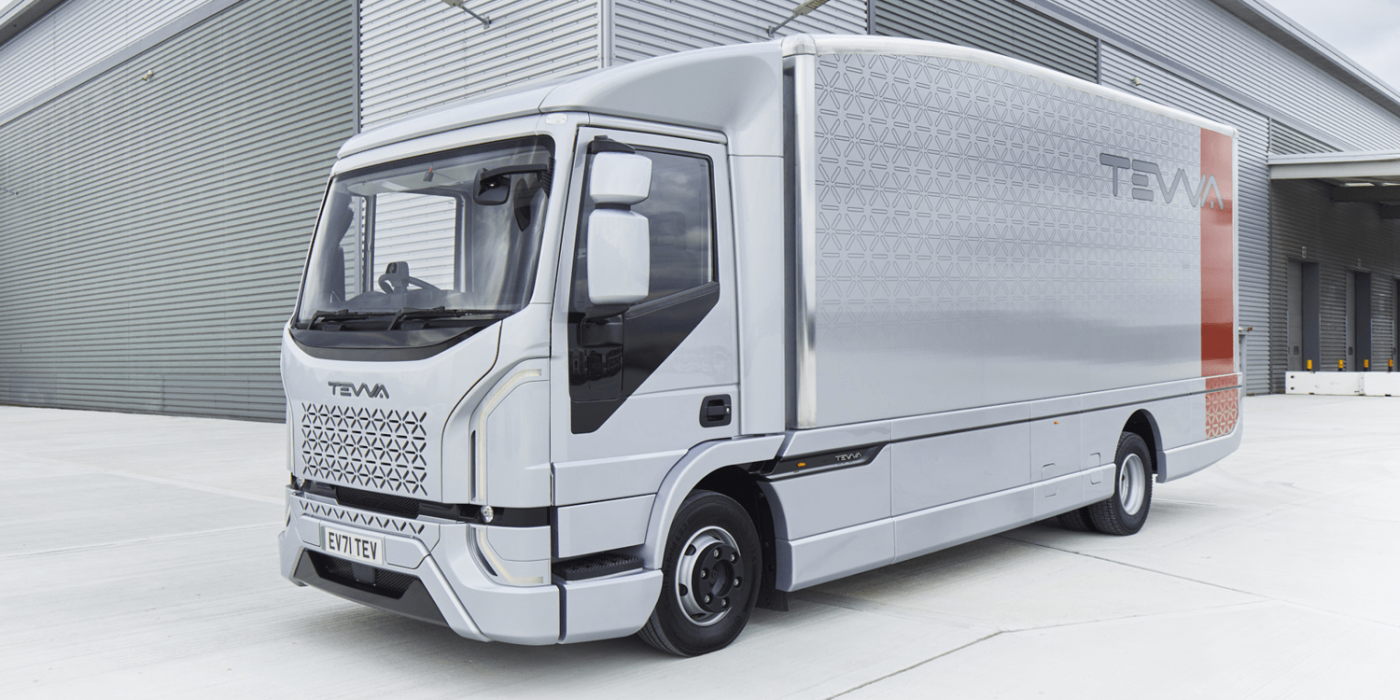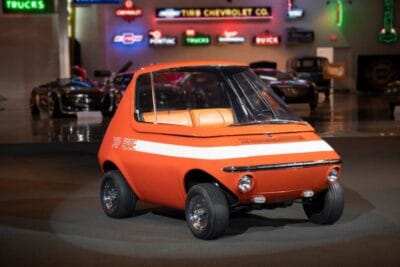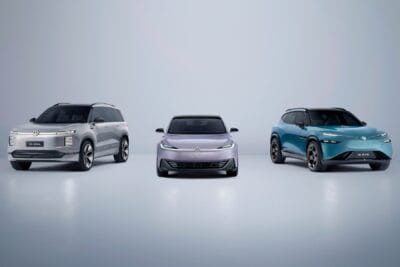Tevva receives multi-million £ budget for truck development
UK electric truck manufacturer Tevva has secured a £4.2 million (just under €5 million) grant from the Advanced Propulsion Centre (APC) to develop the next generation of medium-duty electric trucks with fuel cell range extenders and gross vehicle weights between 7.5 and 19 tonnes.
Only a few days ago, Tevva unveiled a 7.5-tonne truck as its debut truck, which is supposed to have a range of up to 250 kilometres in pure electric drive and a range of up to 500 kilometres with the FC range extender activated. Production of the so-called Tevva truck is expected to start in July 2022. Already in this context, the British company pointed out that the model is to become the first of a series of electric truck models to be manufactured by Tevva in the UK in the future.
In the course of the funding commitment by the APC, Tevva now names further key points regarding its further product plans. For example, the development of the electric trucks will take place together with its partner Advanced Electric Machines (AEM) as part of the £2.2 million SANGREAL project. The collaboration includes the design and development of an innovative e-axle and an intelligent vehicle propulsion control system with onboard telematics. The latter is intended to “optimise the use of the fuel cell range extender in terms of range and reliability and enable predictive and predictive maintenance,” Tevva informs.
Ken Scott, the chief engineer at Tevva, says he is pleased with the million-dollar grant, which will help “continue the development of Tevva’s breakthrough technology in the electric vehicle market. We are developing zero-emission solutions for logistics vehicles in higher weight classes that offer real operating cost benefits and a longer range compared to existing diesel vehicles – which is truly revolutionary for our industry. This funding will help make that a reality in the near future.”
On the range extender, Tevva says that its patented technology called REX has been converted to hydrogen fuel cells for use in the e-trucks. In this form, the solution is expected to be available from 2023. Characteristics of the technology are that the fuel cells charge the battery while driving, allowing the trucks to complete longer duty cycles or carry heavier loads.
Last week Tevva did not give much performance data on the 7.5-tonne model. The range estimates mentioned at the beginning of this article, together with the information that the model offers a payload of two tonnes and can load up to 16 Euro pallets, are the only clues to the practical benefits of the British electric truck. Only with regard to the total cost of ownership do the British company says that it is comparable to that of a diesel vehicle: “From about 3,000 km or a monthly consumption of 500 litres of diesel, the costs are identical,” Tevva announced last week.





0 Comments